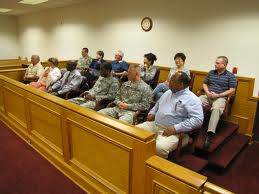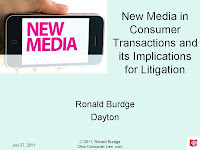When does it begin? Your communication with the Jury starts before you talk. From the moment you are both in the same room, in fact when you are walking down the hallway on your way to the courtroom, the communication is occurring.
Every physical aspect of you is being inspected by the jury pool. Your clothes, hair, demeanor, face, attitude, gait, style - everything. Before the trial starts, you are on display and the Jury’s perception of your competency is already on trial. You are “on trial” from the moment you arrive at the courthouse, long before you enter the courtroom, and long before you stand up to begin your voir dire. Knowing that fact can make a difference before your trial even begins.
Your acceptance and your credibility with a jury starts with how you look and how you act. It solidifies with what you say and how you say it.
As a trial attorney, you are both an actor and the director of the stage play that is the trial itself. The jury is the audience. Whether the audience applauds you with a verdict (you win) or throws tomatoes at you (you lose) will depend on how well you present both yourself and your version of the play. The version of the play that you present, of course, is your client’s version of the truth.
Ironically, your opposing counsel is presenting his or her own version of the same play (and their truth) and the Jury is watching both of them unfold in roughly the same time frame. Ultimately, they will applaud only one side’s presentation. They will only believe one side sufficiently to award their verdict.
The prevailing side’s version of the truth becomes, in the process, the truthful reality that is accepted by the Jury and on which they award their verdict.
In most courtrooms you will have three chances to communication directly with the Jury - voir dire, opening statement, and closing argument. You may also get a rebuttal argument, for a final and fourth opportunity. Each of those presents a uniquely different chance to communicate from the communication that will occur during the vast majority of the time that the trial will consumer each day. For that reason, the indirect communication that occurs during a trial must not be ignored. We'll talk more about that next time.











